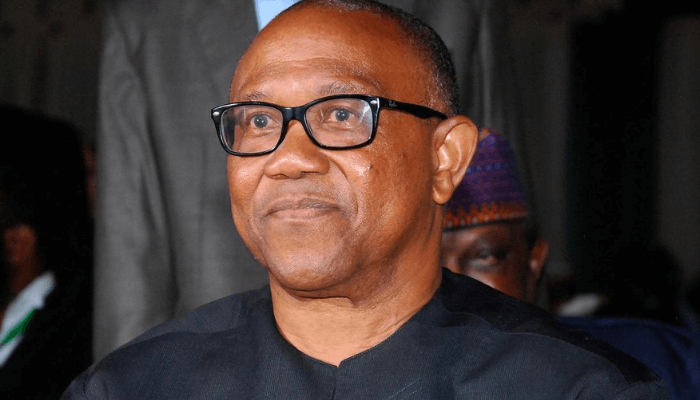FG’s import duty inconsistency hurting economy – MAN, Obi
The organized private sector as well as the Presidential candidate of the Labour Party (LP) in the 2023 general elections, Mr Peter Obi, have kicked against the continued rise of the Customs duty rate for imported consignments by the Central Bank of Nigeria (CBN). CBN had in less than 72 hours raised the amount […]

Peter Obi
The organized private sector as well as the Presidential candidate of the Labour Party (LP) in the 2023 general elections, Mr Peter Obi, have kicked against the continued rise of the Customs duty rate for imported consignments by the Central Bank of Nigeria (CBN).
CBN had in less than 72 hours raised the amount payable on import by about 4.28 percent, throwing those in the import sector in more confusion
The Director General of the Manufacturers Association of Nigeria (MAN), Segun Ajayi-Kadir said: “The rates at which the import of raw materials, spare parts, and machines is calculated and freezed. The move will provide stability for manufacturers, shielding them from the impact of fluctuating currency values and fostering a more predictable business environment.”
Mr Peter Obi in his reaction said the federal government’s inconsistency in customs duty charges is hampering business growth and could lead to more business entities collapse.
He said this in a series of posts Wednesday morning on his X handle.
Obi said; “I wish to urgently call on the Federal Government of Nigeria to end the inconsistency in duty charges as it is affecting the general business atmosphere in the country. The federal government should stop the arbitrary and ever-increasing customs duties as it is now negatively impacting businesses and the cost of items, and this portends a huge danger to the economy.
“A situation where at the point of initiating importation, Form M and other documents related to importation are based on a particular rate of exchange, for example, N1000 to $1, being the prevailing exchange rate at the time which the importer of goods was used to calculate the entire process, from the import initiation to receipt of goods in his warehouse.
“Then suddenly when the goods arrive in Nigeria, and duties are calculated at different rates, say N1400 to $1, it becomes a serious business challenge that results in business losses. Worse still, it directly fuels the inflationary spike which is the basis of increasing cost of goods and living,” Obi said.
He said all efforts of the government should be directed at supporting businesses, especially those in the manufacturing sector, to keep their businesses afloat and keep the economy growing, as the small business sector remains the most critical engine of economic growth.
